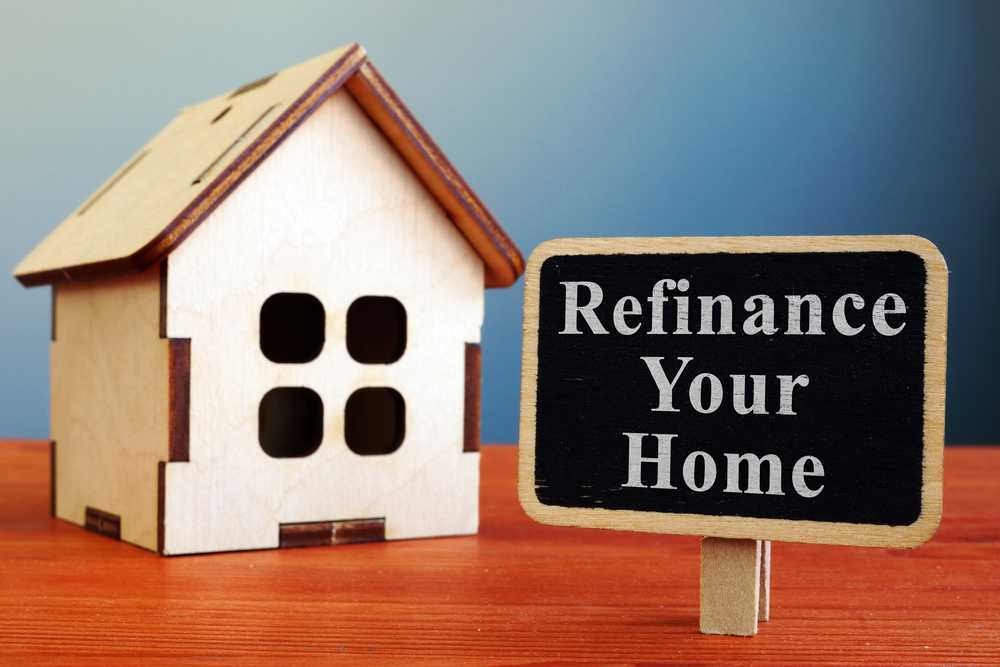Refinancing a mortgage takes place when you take out a new home loan and use the proceeds to pay off your old one. That might sound like a pain, but there are many compelling reasons homeowners opt to change mortgage loans years — or even decades — after originally purchasing their property.
Before you decide if you should refinance your home loan, think about the situation you're in now and what you hope to gain. Ideally, you'll end the mortgage refinancing process with a home loan that's better — or more suited to your needs — than the one you started with.
Secure a Lower Interest Rate
Securing a home loan with a lower interest rate can mean paying less interest over the lifetime of your home loan, yet you might also get a lower monthly mortgage payment in the process. The difference in interest rates doesn't even have to be dramatic to lead to big savings.
Consider this example:
Let's say you borrow $300,000 on a 30-year, fixed-rate mortgage with an APR of 4.5%. In that case, the monthly principal and interest payment would equal $1,520. Meanwhile, the total cost of the loan would ultimately work out to $547,220, meaning you'll pay over $247,000 in interest payments over 30 years.
If you were able to refinance the same loan with an APR of 3.75%, however, the numbers look drastically different. In that case, your principal and interest payment drops to $1,389 and the total loan cost decreases to $500,165. In other words, refinancing your mortgage could net you nearly $50,000 in savings, not accounting for closing costs.
Shorten Your Repayment Timeline
In most cases, choosing a shorter repayment period (e.g. refinancing a 30-year mortgage into a 15-year home loan) can help you qualify for a lower interest rate than you would get with a comparable loan. According to Rocket Mortgage, the average interest rate on a 15-year home loan has been .65% lower than rates for a 30-year mortgage over the last 5 years.
Shortening your repayment timeline also means paying less in interest — even at the same interest rate. This is because more of your payment goes toward the principal of your balance right away, thus reducing your monthly interest costs on a faster timeline.
Just keep in mind that shortening your repayment timeline typically means paying a larger monthly payment for the life of your loan. An example:
If you borrowed $300,000, the principal and interest payment for a 30-year mortgage with an interest rate of 3% works out to $1,265 per month. Meanwhile, a 15-year home loan with the same terms would require $2,072 per month in principal and interest payments..
Convert to an Adjustable Rate Mortgage (ARM) or Fixed-Rate Mortgage
Another reason to consider refinancing could involve the type of mortgage you have. For example, you might want to switch from a fixed-rate home loan to an adjustable-rate mortgage (ARM) in order to take advantage of lower interest rates. This move can make sense in a few situations, but particularly if you're planning to pay off your loan or move within the fixed-rate period of the loan. For example, a 7/1 ARM has a fixed rate for seven years followed by a variable interest rate, so refinancing could make sense if you plan to move, pay off your loan or refinance again within seven years.
Likewise, you may want to use today's low-rate environment to switch from an unpredictable ARM to a new home loan with a fixed interest rate. This move could be smart if you plan to stay in your home for the long haul and you don't want to worry about future interest rates impacting your loan or monthly payment.
Tap Equity
According to a report from the National Association of Realtors, the price of existing single-family homes rose in all major metro areas in the fourth quarter of 2020, with 88 percent of those areas seeing double-digit price gains. This means that now may be an excellent time to refinance your mortgage to take cash out, especially since mortgage interest rates remain so low.
By taking out a new home loan in a larger amount and getting the difference in cash, homeowners might be able to afford home upgrades that might otherwise be out of reach. Other common uses of home equity include covering the cost of college tuition or emergency expenses.
Consolidate Debt
While wrapping high-interest debts into a mortgage may seem like a bad idea, the savings for doing so can be substantial. After all, the average credit card interest rate is currently around 16%, whereas the average interest rate for a 30-year home loan is hovering around 3.5%.
How does refinancing to consolidate debt work? Let's say you currently owe $200,000 on a home worth $350,000 but you also have $25,000 in high-interest credit card debt. In this case, you could consider refinancing your mortgage into a new loan for $225,000, then using the proceeds to pay off your credit card bills. You'll owe more on your house than you did before, but your nagging credit card debt would be wiped away.
Refinancing Your Mortgage: Potential Downsides
Refinancing a mortgage can help homeowners reach a multitude of goals, which could include long-term savings or paying off their home loans faster. However, there are plenty of downsides to consider when refinancing, as well as instances where people are better off sticking with the home loan they have.
Potential downsides of refinancing include:
- Extended Repayment Timeline: If you are currently several years into a 30-year home loan and you refinance into a new 30-year loan, your 30 years will reset and start over. This means having a mortgage longer and the potential for higher interest costs over time.
- Larger Monthly Payment: If you refinance your mortgage to secure a shorter repayment term, your monthly payment may go up substantially. This could be true even if your new mortgage has a lower interest rate.
- Reduce Home Equity: If you do a cash-out refinance to tap into your home equity, you'll reduce the amount of equity you have in your property overnight. You could also wind up paying considerably more interest on your home loan than you would have otherwise.
- Pricey Closing Costs: Finally, don't forget that any mortgage — a new one or a refinance loan — requires closing costs upfront. These closing costs can eat away at your interest savings or wipe them away completely.
How to Calculate Your Break-Even Point
To give you an idea of what closing costs might look like, a 2020 report from ClosingCorp showed that national average closing costs for a single-family home worked out to $3,339 in 2019, excluding taxes. However, you'll have to inquire with lenders on how much your closing costs would be based on your loan amount, your credit rating and other factors.
Is refinancing worth it? You can figure out your break-even point by following these steps:
- Step 1: Ask your lender for the estimated closing costs for your mortgage refinance loan.
- Step 2: Determine how much lower your monthly payment will be with your new home loan.
- Step 3: Figure out how many months of savings are required to equal your closing costs.
As an example, let's say your new home loan payment will be $200 less than your current loan requires. However, closing costs for the new loan equal $4,800.
In this case, your break-even point would be 24 months.
(24 months x $200 = $4,800 in closing costs)
Mortgage Calculator
If you might have to sell and move before your break-even point is reached, you should probably stick with the home loan you have.
Bottom Line: Should You Refinance?
Before you take steps to refinance your mortgage, you need to run the math. If your goal is saving money, make sure the interest savings you accrue over the life of your new loan is worth more than the closing costs you'll have to pay. If you plan to refinance to access equity or switch from an ARM to a fixed-rate loan (or vice versa), you'll want to make sure costs involved in acquiring a new home loan are worth it to you.
Also make sure you can afford the new monthly payment — especially if you're reducing the repayment timeline of your mortgage.
If the math works out and the new home loan is truly a better deal, then refinancing could make sense. If the math seems fuzzy or forced, on the other hand, refinancing could be a waste of time.

